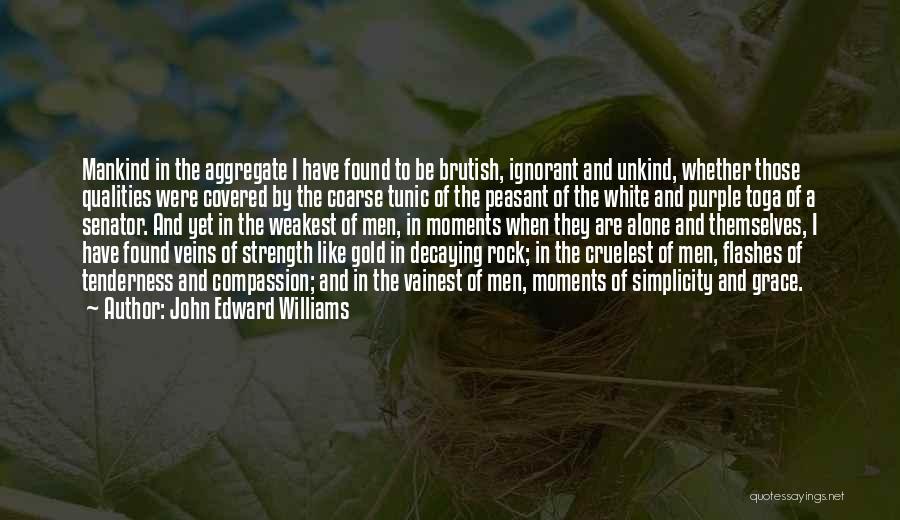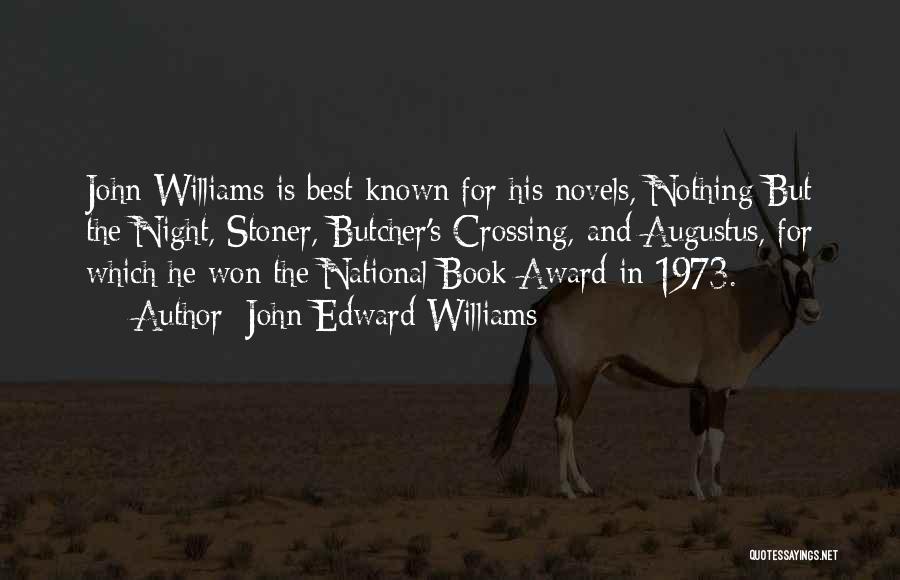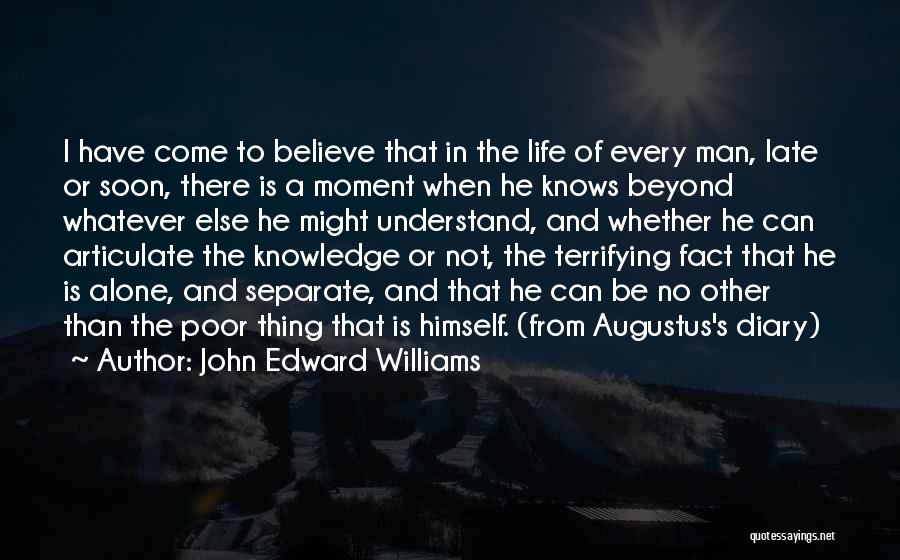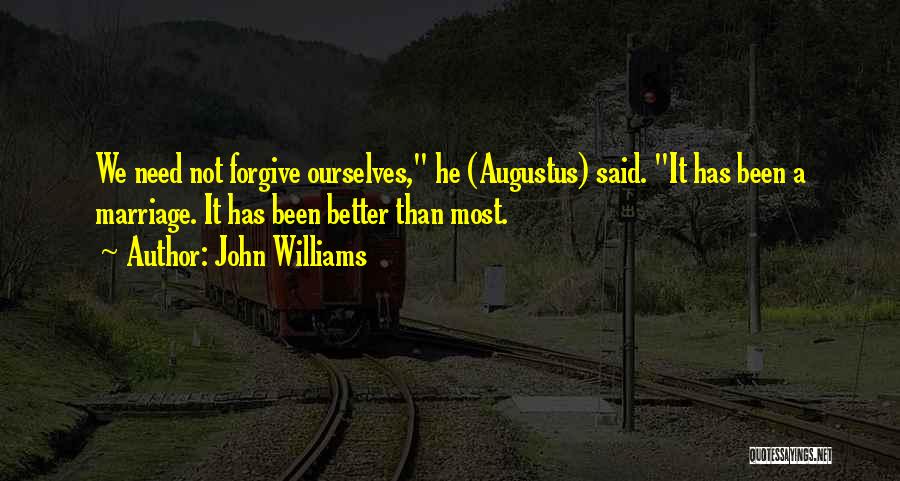John Williams Augustus Quotes & Sayings
Enjoy reading and share 5 famous quotes about John Williams Augustus with everyone.
Top John Williams Augustus Quotes

Mankind in the aggregate I have found to be brutish, ignorant and unkind, whether those qualities were covered by the coarse tunic of the peasant of the white and purple toga of a senator. And yet in the weakest of men, in moments when they are alone and themselves, I have found veins of strength like gold in decaying rock; in the cruelest of men, flashes of tenderness and compassion; and in the vainest of men, moments of simplicity and grace. — John Edward Williams

John Williams is best known for his novels, Nothing But the Night, Stoner, Butcher's Crossing, and Augustus, for which he won the National Book Award in 1973. — John Edward Williams

I have come to believe that in the life of every man, late or soon, there is a moment when he knows beyond whatever else he might understand, and whether he can articulate the knowledge or not, the terrifying fact that he is alone, and separate, and that he can be no other than the poor thing that is himself. (from Augustus's diary) — John Edward Williams

We need not forgive ourselves," he (Augustus) said. "It has been a marriage. It has been better than most. — John Williams

The young man, who does not know the future, sees life as a kind of epic adventure, an Odyssey through strange seas and unknown islands, where he will test and prove his powers, and thereby discover his immortality. The man of middle years, who has lived the future that he once dreamed, sees life as a tragedy; for he has learned that his power, however great, will not prevail against those forces of accident and nature to which he gives the names of gods, and has learned that he is mortal. But the man of age, if he plays his assigned role properly, must see life as a comedy. For his triumphs and his failures merge, and one is no more the occasion for pride or shame than the other; and he is neither the hero who proves himself against those forces, nor the protagonist who is destroyed by them. Like any poor, pitiable shell of an actor, he comes to see that he has played so many parts that there no longer is himself. — John Edward Williams





